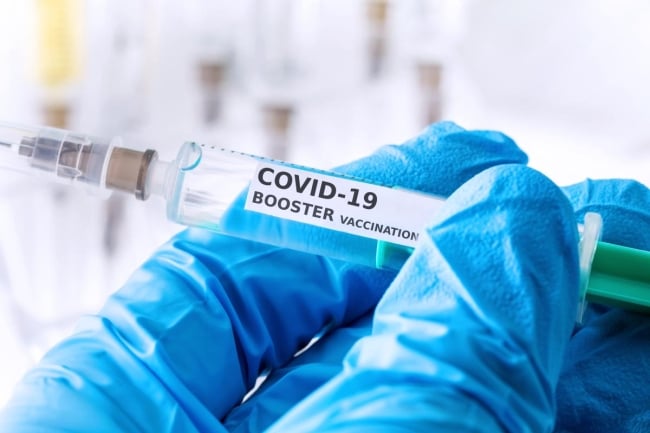You have /5 articles left.
Sign up for a free account or log in.

Teka77/iStock/Getty Images Plus
Colleges with COVID-19 vaccine mandates now face the question of whether to require additional shots in light of new federal health guidance and widespread uncertainties about the newly detected Omicron variant.
The Centers for Disease Control and Prevention on Monday strengthened its recommendation on booster vaccines to recommend that all adults “should” get a booster shot either six months after their initial Pfizer or Moderna vaccine series or two months after a single Johnson & Johnson vaccine.
Previously, the CDC said all adults “may” get a booster.
“The recent emergence of the Omicron variant (B.1.1.529) further emphasizes the importance of vaccination, boosters, and prevention efforts needed to protect against COVID-19,” CDC director Rochelle Walensky said in a statement Monday. “Early data from South Africa suggest increased transmissibility of the Omicron variant, and scientists in the United States and around the world are urgently examining vaccine effectiveness related to this variant.”
While more than 1,000 colleges have required COVID-19 vaccination for students or employees, so far it seems that only a small number have taken the additional step of requiring boosters.
Wesleyan University in Connecticut announced Nov. 23 it would require all students and employees to receive a booster vaccination before the spring semester as part of its existing COVID-19 vaccination requirement.
Wesleyan said in its announcement that “the vast majority of faculty, students and staff are currently eligible to receive their booster” and must upload a copy of their updated vaccination card no later than Jan. 14.
St. Joseph’s College of Maine began requiring booster vaccinations for students, faculty and staff Oct. 4, a requirement that it said would “be implemented on a rolling basis—as boosters become available, and as the list of recommended recipients expands.” The college now boasts a 99 percent vaccinated—and 50 percent boosted—campus population.
Oliver Griswold, a spokesman for St. Joseph’s, said the health and wellness center sends an email to individuals on the day they become eligible for a booster, and they have 30 days from that point to get their shot.
“The way we’re looking at boosters is we require our faculty, staff and students to be fully vaccinated, and so if the vaccine efficacy is waning and a booster is recommended, we consider getting the booster fully vaccinated,” he said.
Other colleges are still weighing whether to require boosters. Smith College said Monday it is “considering requiring booster shots as part of its COVID-19 health and safety policies.”
Meanwhile, the University of Rochester said in a communication Monday that it is strongly encouraging, but not requiring, students, staff and faculty to receive a booster.
Gerri Taylor, the co-chair of the American College Health Association’s COVID-19 task force, said that while the association has recommended that colleges require COVID-19 vaccination, it has not made any recommendation on requiring boosters.
She said she is watching to see if the CDC updates its definition of “fully vaccinated.” Under the current definition, individuals do not need to have received a booster six months after their initial shot or shots in order to be considered fully vaccinated.
“Colleges can always err on the side of doing more—they cannot err on the side of doing less—but if the CDC were to say that the new definition includes the booster, then colleges might be more apt to require it,” Taylor said.
She said colleges should be encouraging boosters in any case. “Especially now, colleges should be pushing first vaccines for those who have not been vaccinated and, secondly, really pushing the boosters,” she said.
Taylor added, however, that requiring booster shots could present logistical and staffing challenges for campus health clinics, which are already stretched thin.
“I think my biggest concern is do they have the staff to do more of the tracking, to provide booster clinics and to see more sick students if we have more cases coming in because of COVID in general or because of the Omicron variant,” she said. “We’ve seen staffing as one of the two top issues for college health services in our recent survey … the other one was burnout.”




